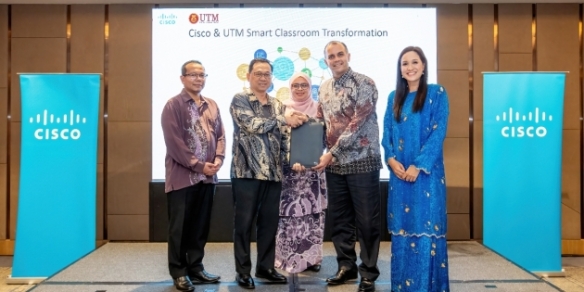Bulls-eye by Goldis, black eye for the ecosystem?
By Karamjit Singh July 16, 2013
- Earns over 200 times multiples based on its initial US$33,000 investment for 70% stake
- Deal also lays bare ugly underbelly of the ecosystem - lack of exit options for investors
 IT is a jaw-dropping return in terms of multiples and according to one of the veterans of the venture capital scene here, Chok Kwee Bee of Teak Capital, it is probably a record for Malaysia.
IT is a jaw-dropping return in terms of multiples and according to one of the veterans of the venture capital scene here, Chok Kwee Bee of Teak Capital, it is probably a record for Malaysia.
Chok was referring to the RM22.4 million (US$7.1 million) that Goldis Bhd is about to receive for its 70% stake in mobile technology enabler Macrokiosk Sdn Bhd.
Goldis is an investment company with private equity investments in Malaysia and China. It focuses on life sciences, water/ waste-water treatment, ICT (Information and Communications Technology) and organic aquaculture. It is also the major substantial shareholder of IGB, a listed property developer in Malaysia.
That US$7.1 million will be forked out by brothers Kenny Goh, Henry Goh and CS Goh, the founders of Macrokiosk in a management buyout (MBO). Now, the amount does not look like a lot of money in absolute terms, but when you consider that Goldis paid RM105,000 (US$33,180) for its stake back in 2002, you see why Chok thinks it is a record in terms of multiples (about 213).
Another leading player in the ecosystem could only mutter “wow” when asked for his comments. Upon composing himself, the angel investor surmised that Goldis would probably have contributed more money to Macrokiosk over the years, perhaps in the form of a shareholders’ loan. “But it is an incredible exit, credit to them,” said the angel investor, who preferred not to be named.
The angel investor was right. Colin Ng, chief investment officer at Goldis, later told Digital News Asia (DNA) that Goldis has invested a total of RM3.5 million (US$1.1 million) into Macrokiosk over the years and, "as per the agreement dated July 8, 2013, there is an inter-company advance [to Macrokiosk] of approximately RM10.4 million (US$3.3 million)," he said. This needs to be repaid too as part of the MBO terms.
While even Patrick Grove, chairman and chief executive officer of investment firm Catcha Group, sees it as positive for the ecosystem, the exit by Goldis exposes the raw underbelly of the Malaysian tech ecosystem – the lack of exit options for investors.

This was one of the key gaps in the ecosystem that entrepreneurs identified during the Silicon Valley Comes to Malaysia (SVC2M) conference in 2011. It has not been closed in the ensuing two years.
Depite this, Grove (pic) chooses to be positive and says it is a great result for Goldis, great for the three brothers, and an even greater result for the ecosystem, adding “showing once again, that investors can make money backing Malaysian technopreneurs.”
However, the question that should be asked is, “Why did it take so long for Goldis to exit” and realistically, “How often can any investor expect a buyout from the founders?”
It was well known that Goldis had been looking for a buyer for its stake but apparently found nobody, or could not come to a price it was agreeable to.
Making this case even more interesting is that Macrokiosk sits squarely in the telco space and yet none of the main players here sought to acquire it.
It is a regional and profitable company too, with a net profit of RM838,000 (US$264,770) in its fiscal year which ended Jan 31, 2011, and a net profit of RM1.46 million (US$461,300) in the year ended Jan 31, 2012.
I wonder if Macrokiosk had been a Singapore company, would SingTel have swallowed them up by now. After all, they are snapping up local and foreign companies in the Internet space which have a mobile element to their product.
Note that this is the second time the Goh brothers made an MBO offer. In 2011 they offered RM15 million (US$4.7 million) but that deal fell through as the conditions precedent had not been fulfilled.
The previous deal, took into consideration a call option, while the 2013 deal offered was a total buyout deal. According to Ng, both are based on five times of EBITDA/Nett Cash Flow, meaning Macrokiosk's EBITDA (Earnings Before Interest, Taxes, Depreciation and Amortisation) has increased.
Now the the Goh brothers will be fully in charge of running the show, one wonders how much more can they do to drive the performance of Macrokiosk.
I once asked Kenny Goh why they sold such a large stake for a low price and he attributes it to the fact that they were young and inexperienced then. He was 24 years old at the time of the deal – the oldest of the three brothers!
And what will Goldis do, moving forward? Invest the money back into the ecosystem? See the Q&A on the next page.


